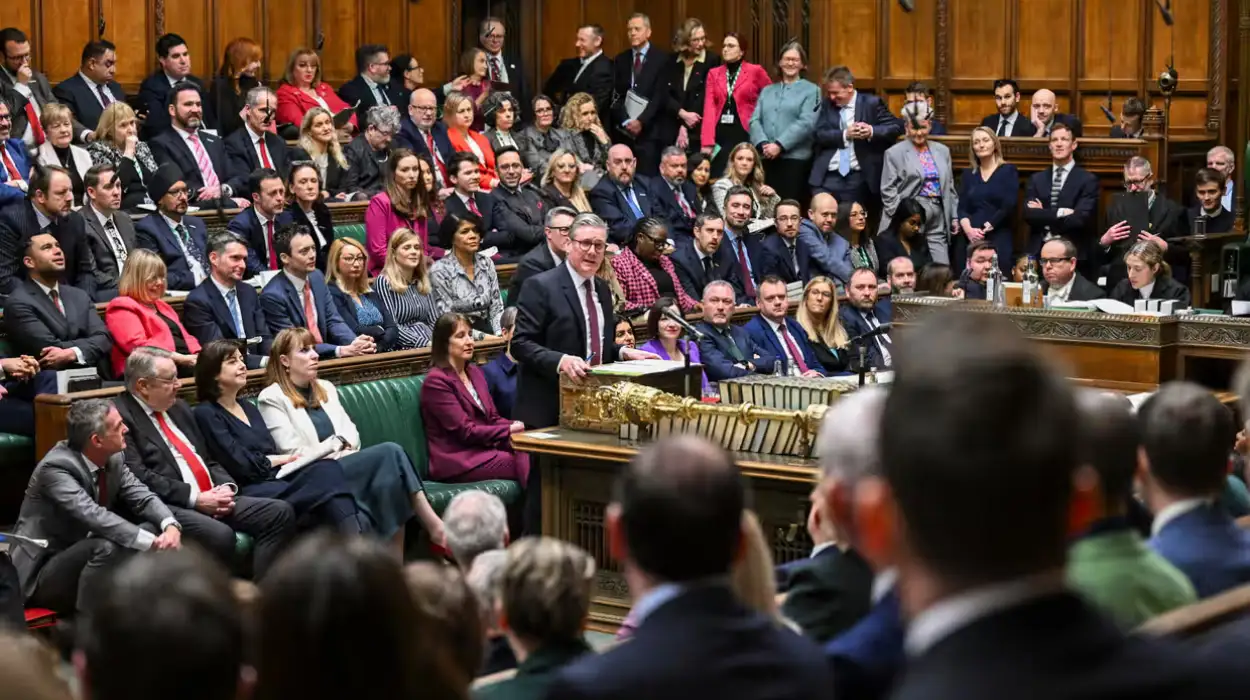UK (Parliament Politics Magazine) – The UK has delayed AI regulations to align with Donald Trump’s administration, as ministers aim to keep the country attractive to tech companies.
The Guardian reported that plans to regulate artificial intelligence have been put on hold as the British government seeks closer alignment with US policies.
Why is the UK delaying its AI regulation bill?
According to Labour insiders, the UK’s AI regulation bill will not be presented in parliament before summer. This long-awaited bill was once expected before Christmas.
A short AI bill, meant to be published within months of taking office, mandated companies to provide large AI models like ChatGPT for scrutiny by the UK’s AI Security Institute.
In an effort to address concerns over AI’s potential risk to humanity, the legislation was separate from proposals aimed at defining how AI companies use copyrighted material.
A Labour source stated that a draft of the AI bill was prepared months ago. However, due to Trump’s policies, the bill remains uncertain, as ministers hesitate to implement measures that might deter AI businesses.
Another senior Labour source revealed that the bill remains “properly in the background,” with “no hard proposals in terms of what the legislation looks like,” adding, “They said let’s try and get it done before Christmas – now it’s summer.”
What did Peter Kyle say about the AI bill, and how did the government respond?
In December, Science and Technology Secretary Peter Kyle said the AI bill was progressing well, but this month, Science Minister Patrick Vallance told MPs that “there is no bill at the moment.”
A government representative said,
“This government remains committed to bringing forward a bill which allows us to safely realise the enormous benefits of artificial intelligence for years to come.”
The spokesperson added,
“As you would expect, we are continuing to engage extensively to refine our plans and will launch a public consultation in due course to ensure our approach is future-proofed and effective against this fast-evolving technology.”
Why are ministers facing pressure over AI copyright rules?
Government officials are facing mounting pressure over proposals to allow AI firms to train their models using copyrighted online content. This includes creative works, which could be used without seeking prior permission.
Top artists like Paul McCartney and Elton John, have raised concerns regarding the AI legislation, arguing that it would let companies sidestep copyright protections and harm those who rely on them for income.
How is Britain aligning with the US on AI regulation?
The newly elected American president has overturned former President Joe Biden’s AI regulatory framework, including an executive order designed to make artificial intelligence safer and more accountable. The US AI Safety Institute, founded during Biden’s administration, now faces an uncertain future following the resignation of its director. At an AI summit in Paris, US Vice President JD Vance condemned Europe’s approach to regulating AI legislation.
Britain has chosen to stand with the US on AI policy by refusing to sign the Paris declaration, backed by 66 countries. According to reports, the UK ambassador to Washington, Peter Mandelson, has drafted plans to establish the country as the primary hub for US AI investment.
What did Number 10 say about signing the AI Paris Declaration?
According to Downing Street, the declaration lacked depth in addressing global AI governance and its implications for national security.
Number 10 stated,
“We agreed with much of the leaders’ declaration and continue to work closely with our international partners. This is reflected in our signing of agreements on sustainability and cybersecurity today at the Paris AI Action Summit.”
A government’s official spokesperson added,
“We felt the declaration didn’t provide enough practical clarity on global governance, nor sufficiently address harder questions around national security and the challenge AI poses to it.”
The current state of AI regulation in the UK
- Britain has no specific AI law; regulation is sector-based.
- The previous Conservative government took a pro-innovation, principles-based approach.
- AI regulation follows five key principles: safety, transparency, fairness, accountability, and contestability.
- The AI Safety Institute was set up to assess AI risks, but participation is voluntary.
- Plans for mandatory AI regulations on high-risk models remain uncertain under the new government.
- An AI Regulation Bill was proposed in 2023 but failed to pass.
- AI firms in the UK must rely on the current principles until formal regulations are introduced.


